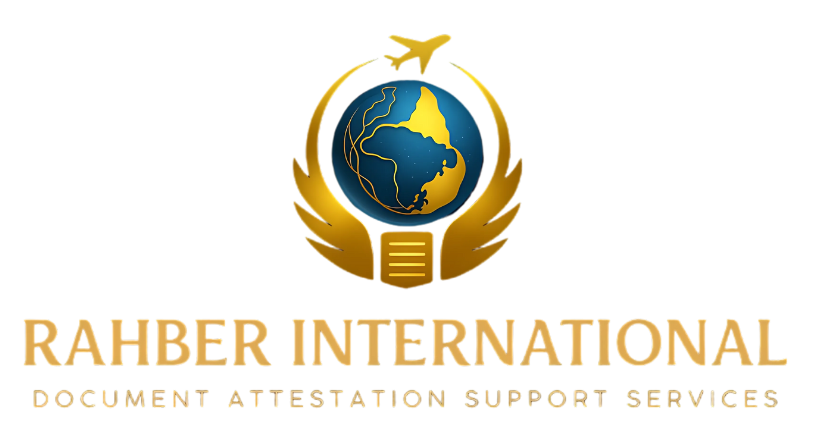Apostille Attestation: Everything You Need to Know
Introduction
If you’re planning to move abroad for studies, work, or family purposes, you may have heard of the term Apostille attestation. It’s an internationally recognized way of verifying documents, making them valid in other countries without further authentication. But what exactly is it, and do you really need it? Let’s break it down.
What is Apostille Attestation?
An Apostille is a special form of document legalization introduced under the Hague Convention of 1961. It certifies the authenticity of a public document, such as educational, personal, or business papers, so they are recognized in all member countries without requiring embassy attestation.
Why Do You Need Apostille Attestation?
- Education Abroad – Universities in Hague countries require Apostille-stamped certificates.
- Employment – Employers abroad often demand Apostille attested degrees.
- Immigration/Family – Marriage and birth certificates must be Apostille attested for visa purposes.
- Business/Trade – Companies dealing internationally need Apostille for contracts and agreements.
Countries That Accept Apostille
More than 120 countries are part of the Hague Convention. Some major examples include:
- USA, UK, Australia, Canada, Germany, France, Italy, Spain, Japan, South Korea.
These countries accept Apostille instead of lengthy embassy legalizations.
Documents Eligible for Apostille
- Educational Certificates – Degrees, diplomas, transcripts.
- Personal Documents – Birth, marriage, divorce, and death certificates.
- Business Documents – Power of attorney, contracts, company registrations.
Step-by-Step Process of Apostille Attestation
- Pre-verification – Get your documents attested first by the relevant local authority (HEC, IBCC, NADRA, etc.).
- Submission – Submit your verified documents to MOFA or the designated authority.
- Issuance of Apostille Stamp – The Apostille stamp is attached to your document, making it legally valid abroad.
How Apostille Looks Like
An Apostille is usually a square-shaped certificate affixed to the document. It includes:
- Title: “Apostille (Convention de La Haye 1961)”
- Date, signature, and seal of the issuing authority
- Security codes and reference number
Documents Required for Apostille
- Original certificates
- CNIC/Passport copy
- Verification letters from relevant boards/universities
Where to Get Apostille in Pakistan?
Pakistan officially joined the Hague Apostille Convention in 2023. Now, the Ministry of Foreign Affairs (MOFA) is responsible for issuing Apostille stamps on documents.
Difference Between Apostille and MOFA Attestation
- MOFA Attestation – Required for non-Hague member states (like UAE, Saudi Arabia, Qatar).
- Apostille – Accepted only in Hague Convention countries, replacing embassy attestation.
Apostille for Students
Planning to study in Europe, the UK, or the USA? Apostille is now a mandatory requirement for your degrees and transcripts. Without it, universities won’t accept your papers.
Apostille for Employment Abroad
Employers in Hague countries require Apostille-stamped certificates to confirm your qualifications. It simplifies and speeds up work visa processing.
Apostille for Business and Trade
If your company is signing international contracts or assigning power of attorney in a Hague country, Apostille is compulsory for recognition.
Processing Time and Fees for Apostille
- Processing Time – Normally 2–3 working days.
- Fee – Nominal charges depending on document type (educational, personal, commercial).
Common Challenges in Apostille Attestation
- If the destination country is not part of the Hague Convention, Apostille won’t work.
- Missing pre-verification stamps cause rejection.
- Processing delays may occur due to high applications.
Tips for Smooth Apostille Process
- Ensure all documents are pre-attested by local authorities.
- Carry multiple copies of documents.
- Use reliable attestation services for hassle-free processing.
Conclusion
Apostille attestation is a simple but powerful way to validate your documents abroad. With Pakistan now part of the Hague Convention, students, professionals, and businesses can benefit from faster and more globally accepted document verification. Always check whether your destination country accepts Apostille before starting the process.
